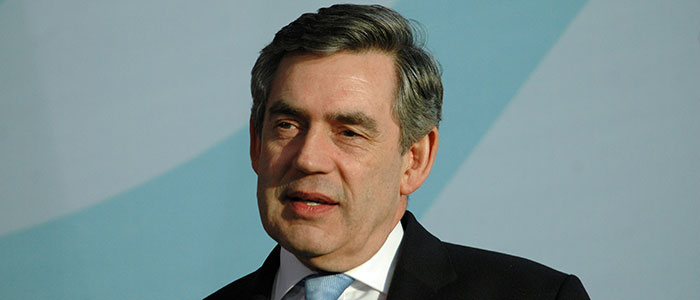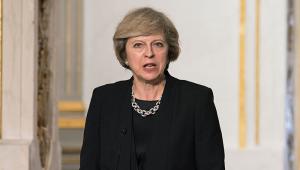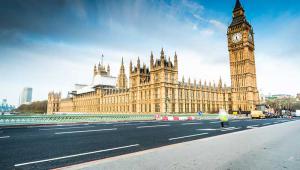Web_GordonBrown_shutterstock_153049352.jpg

Former UK prime minister Gordon Brown, who now serves as the UN's special envoy for global education.
In 2013, Britain became one of only a handful of countries to meet a decades-old United Nations target for donor countries to spend 0.7% of their national income overseas. It then enshrined this commitment into law two years ago.
Amid a crisis in the country’s health service and a campaign against the target from certain sections of its media, there is already heated debate about whether the law should be repealed and whether the target should remain in place.
But Brown, addressing a UK parliamentary committee on aid, stressed that it was right that the UK meets the commitment. “There are always emergencies, there are always crises, there are always pressures. There will always be easy justifications,” he said.
“But you’ve got to have a consistent policy of aid which lasts across governments, which is long term and not short term.”
He added that the target is an “important way of recognising” that overseas aid is essential to the success of anti-poverty policies globally and the UK’s objectives in international relations.
It also serves the UK national interest, he stressed. Brown said aid can reduce migration, which many in the country believe is putting too much pressure on jobs and public services at its current levels. As such, the issue was thought to be a key factor in the country’s Brexit vote.
Brown was addressing the UK’s international development select committee, which serves as the country’s aid watchdog. He was speaking in his capacity as the UN’s special envoy for global education.
The former prime minister said it was important to get the aid debate “into perspective”. He highlighted one example: if the funding allocated to promote education in lower middle-income countries was combined from the world’s national and international aid agencies – including the UK’s Department for International Development, the World Bank and UNESCO – it would equal just $10 per child, per year.
This was “less than a cost of a textbook,” Brown noted. “We are not overspending on education for children in the poorest countries. There is a crisis because everybody is underspending.”
He stressed that more resources were needed, both from developing countries themselves and donors.
Poorer countries have “got to do better”, he said, by spending at least 5-6% of their national income on education. Countries like Pakistan, for example, allocated only 2.55% in 2015, according to data from UNESCO.
“The International community has got a duty to step in when we know that countries won’t meet the target,” Brown continued.
He noted there was a $1.2tn funding gap in meeting the Sustainable Development Goals on education in lower middle-income countries alone.
At least 15% of all international aid should go towards education and countries that do not meet the 0.7% aid target should ensure they are at least hitting 0.5%, he said.
While DFID achieves the latter, the share of its budget going towards education has been shrinking. As Brown observed, children in crises situations are often the worst affected. In 2014, for example, just 2% of all global humanitarian aid funding went towards education.
Brown said funding should be used differently as well as being scaled up. Donors should pool money to achieve greater impact, through a global fund for education or via an earmarked recapitalisation of an institution like the World Bank.
Borrowing for education also needs to be made more attractive for developing countries that cannot take out loans even at the current concessional rates.
“It’s important to recognise that this crisis is going to get worse if we do nothing about it,” he stated. “As the population rises, particularly in Africa, then there are going to be more children without a proper education.”













